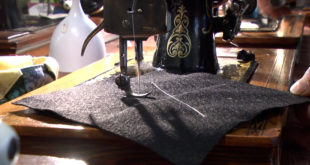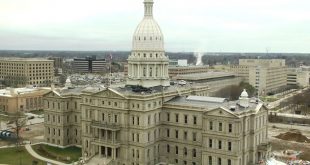A new exhibit in Copper Harbor explores an unknown disease with flu-like symptoms that was prominent around the Civil War.
 Fort Wilkins State Park Historian Barry James said the mysterious epidemic hit the troops at Fort Wilkins during the 1844-1845 winter.
Fort Wilkins State Park Historian Barry James said the mysterious epidemic hit the troops at Fort Wilkins during the 1844-1845 winter.
“The Michigan History Center was excited to put in this exhibit because we had new information about the post’s doctors, we had the report from the surgeon and we really tell the story of the epidemic that hit Fort Wilkins,” said James.
The new information came from a report in the New York Journal of Medicine published by the fort’s surgeon, Charles Isaacs. He worked to heal these infected soldiers using popular treatments of the time, including blood-letting, cupping and doses of mercury and opium.
The exhibit not only explores these remedies, but also takes visitors into the actual hospital ward these patients were treated in more than 150 years ago, according to James.
“We recreated the period room to the 1840’s period, replacing a room that talked about the second occupation of the fort,” said James. “The beds are recreated to look like they did from the 1840’s as well as medical instruments, so the visitor has an opportunity to enter a room that has never been open to the public before.”
The new exhibit was funded by a grant through The Michigan History Center and the Keweenaw National Historical Park.
Like the rest of Fort Wilkins, this exhibit is open to the public from 8:30 a.m. to dusk until October 16. Admission is free, but a recreation passport is required for park entry.
 Keweenaw Report Your Source for Local News and Sports
Keweenaw Report Your Source for Local News and Sports





